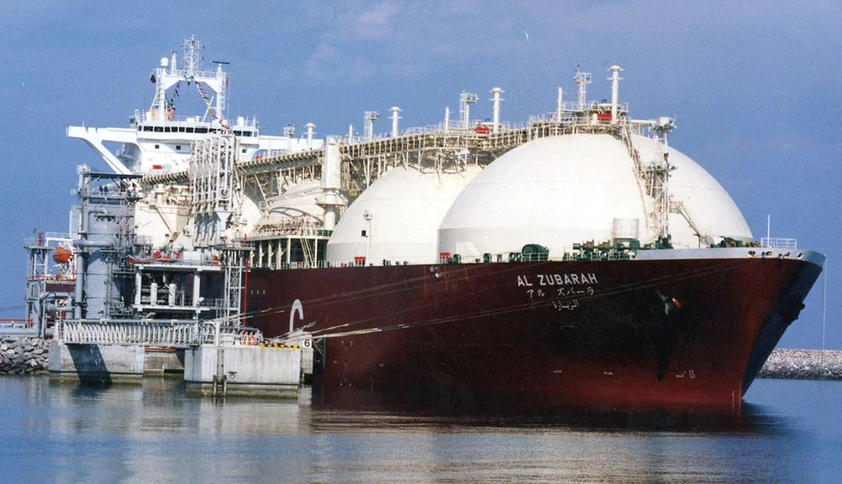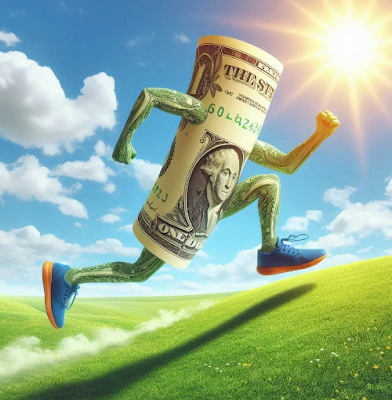
A Qatari Liquid Natural Gas (LNG) tanker ship being loaded up. Germany, which is heavily dependent on Russian gas, last week announced a partnership with Qatar, which will start supplying it with LNG in 2024. Keystone / Str
Swiss and German ministers have agreed to negotiate a solidarity agreement to help each other with gas supply issues in an emergency. The announcement was made on the side lines of the World Economic Forum (WEF) meeting taking place in Davos.
“We don’t know how long it will take to finalise a solidarity agreement but the willingness is there for a pragmatic solution,” Swiss Energy Minister Simonetta Sommaruga told reporters in the Swiss resort on Sunday evening following a meeting with German Economy and Climate Minister Robert Habeck.
Gas makes up roughly 15% of Switzerland’s final energy consumption and is mostly used for heating and cooking. Around half of this comes from Russia, mainly via Germany. Following the outbreak of the war in Ukraine, Switzerland has been stepping up efforts to procure gas from other sources, and to secure additional storage capacity as well as imports of liquefied natural gasExternal link
Last week, the Swiss government presentedExternal link details of its plans to set up a winter gas reserve via storage mainly in France, Germany, Italy and the Netherlands. The aim is to minimise the impact should Russian gas supplies be disrupted.
Qatar LNG
The invasion of Ukraine by Russia, Europe’s top gas supplier, has prompted the European Union and non-EU member states like Switzerland to rethink their energy policies amid heightened concerns of supply shocks. Russia supplies 40% of the EU’s gas and 27% of its imported oil, and EU countries are struggling to agree sanctions on the latter.
Germany, which is heavily dependent on Russian gas, last week announced a partnership with Qatar, which will start supplying it with liquefied natural gas (LNG) in 2024.
“Swiss companies can ask to be associated to this agreement,” said Habeck, adding that in periods of tensions friendly countries must help each other.
The two countries have a mechanism to support each other in the event of large variations in electricity prices. And Switzerland can offer a solution to its neighbour in case of supply problems, said Sommaruga and Economics Minister Guy Parmelin, who was also present in Davos.
EU-Swiss impasse
Following their meeting, the ministers said they also want to overcome the current impasse between Brussels and Bern after the Swiss shelved an overarching framework deal governing long-term ties a year ago. Habeck is due to meet European Commission vice-president Maros Sefcovic. The German minister promised to make “specific proposals” to prevent major economic problems.
It was recently reported that Brussels had asked Switzerland to send written responsesExternal link to a series of open questions as talks seem unable to resolve the current impasse and to advance negotiations on individual agreements. No meetings are planned in Davos between any Swiss officials or the president of the European Commission, Ursula von der Leyen to discuss Swiss-EU matters.
Full story here Are you the author? Previous post See more for Next post
Tags: Featured,Latest news,newsletter
























